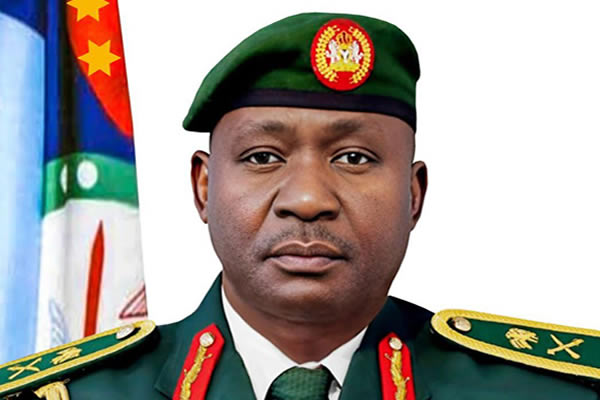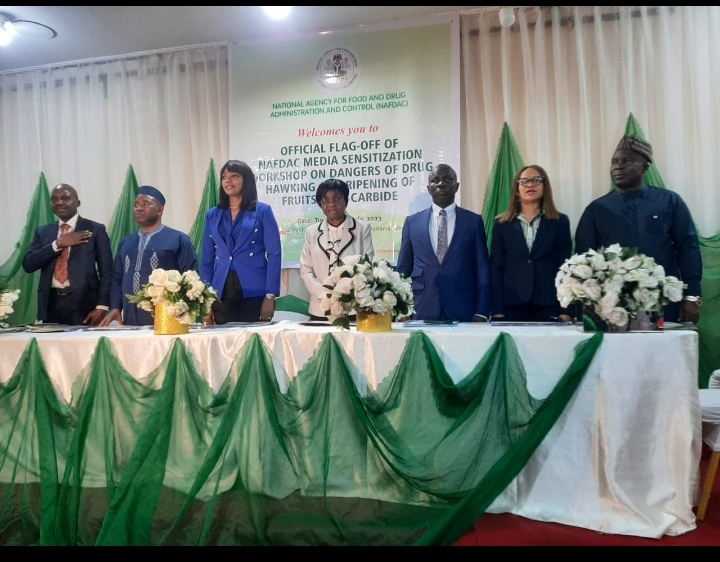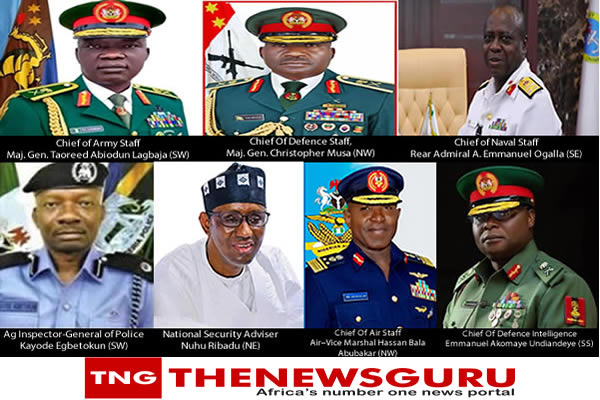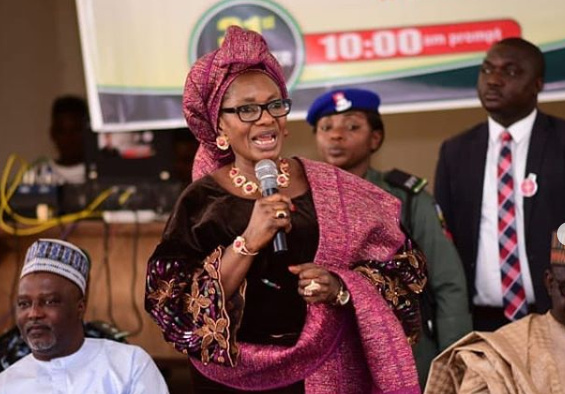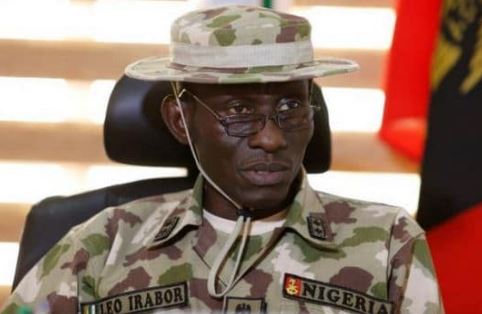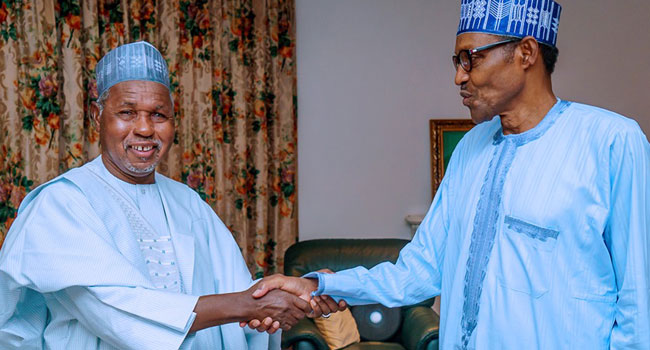The office of National Security Adviser in Nigeria has acquired a string of curious myths. Think of a public office somehow above open discussion by citizens except in whispers and hushed speculations. Imagine a department of state that can interfere in the affairs of other departments without much qualms and cite ‘national security’ as the enabling source of authority. Contemplate a public office that incurs huge expenses and spends public money without much regard for the rules of open public accountability. Think again of a publicly funded office that can be used to conceal nefarious political spending and often monumental corruption in the assurance that few questions would be asked. To sustain the halo of inscrutability around the office of the NSA, all that is required is to couch a dubious spending as a matter of ‘national security’. Just stamp the enabling memo ‘confidential ’. Place the paperwork in a folder with the bold inscription: ‘Top Secret”. End of the matter. No questions asked. No consequences for billions spent in invisible transactions.
An extension of this myth of national security as a fetish is what has come to be known as ‘Security Vote’ in all of our 36 states. To service the unquenchable thirst of this ubiquitous deity, all state governors yank off huge sums of state funds every month for free unaccounted spending in the name of ‘security vote’. With that latitude in place, a governor is free to ‘donate’ hundreds of millions of Naira in support of every conceivable cause. A recent survey puts the security vote per state at an average of N250 million every month. The richer states reportedly charge much more on the treasury of their states. For the 36 states, that comes to a princely sum with hardly any accountability requirements.
Yet every state has detachments of official federal security agencies: Police, Department of State Security, Army, Air Force and Navy (where applicable), Civil Defense Corps, all with their respective budgeted federal funding. As with the federal level, once these curious state expenditures are dubbed ‘security votes’, no more questions are asked. Of course in some states, real internal security threats require state governments to augment the funding of official federal security agencies. States donate vehicles to aid police logistics. Others augment the duty allowances of security personnel in their states.
In the general lack of accountability requirements among state governors, abuses have become rampant. It has drawn the attention of the Nigerian Governors Forum which is said to be working on a peer accountability protocol to check the excesses of some of their members. In general, security in Nigeria has become a thriving industry, almost a deity above questioning, reproach and reprimand.
We must quickly admit that the specific operational mechanics of national security are universally protected from open discussion in barber shops. Similarly, in nearly every country, times and situations of grave national emergency and the pursuit of sensitive national interest, security personnel and agencies do get waivers from routine accountability requirements. Senior security officials get permits in such situations to ‘play’ with cash to achieve specific objectives. For instance, at the early stages of the Iraq and Afghanistan wars, CIA field operatives carried huge cash troves to facilitate ingress and egress of operational assets or to acquire vital intelligence. They could pay off warlords and influential mullahs or buy over informants to ease the progression of advancing troops.
In Nigeria, a strange type of needless myth of secrecy surrounds everything ‘security’. The office of National Security Adviser is the bastion of this myth of secrecy. At different times and under different presidents, the office has served different functions sometimes at variance with constitutional stipulations. On the functions of the NSA and his office, the constitution is unambiguous. The NSA is just one of the gamut of presidential advisers albeit one entrusted with counseling the president on matters of national security.
A consequence of the deification of the NSA’s office is the erroneous belief that only persons with a military, police or security background qualify to be appointed National Security Advisers. Thus we have had an unbroken string of retired military and police persons as NSAs. This of course is a gross misconception. The misconception underplays the deeply intellectual requirement of that office. In the best traditions of the presidential system, an NSA should possess a broader intellectual grasp of aspects of national security. He or she needs to have the capacity to connect all aspects of the security needs of the nation to the uniqueness of national history, economy, society and culture at any given time.
The ideal NSA must therefore be able to connect all aspects of the national reality to credible security threats to the government and people at any given moment in time. Poverty, hunger, environmental challenges, ethnocentrism, religious bigotry etc are as much matters of national security as bandits, terrorists, separatist militias and cross border military manoeuvers by a hostile neighboring state. Most importantly, the NSA must be able to relate the perceived security threats of the moment to the specific agenda of his president.
Because national security is dynamic, the ideal NSA must be able to maintain a synergy with existing defense and security establishments in order to deal with the immediate security challenges. It is because of this broad intellectual requirement of the office that the US from where we cloned our constitution has had a tradition of appointing either renowned intellectuals or intellectually inclined military or security persons as NSAs.
In the pure intellectual tradition, America has had the likes of Henry Kissinger, Condoleeza Rice, Zbigniew Brezinski, Susan Rice and Jake Sullivan as NSA. In the ranks of outstanding persons with military and security background, there have been the likes of Collin Powell, Michael Flynn and H .R Mcmaster in that capacity. Even those with a military background are required to show outstanding intellectual acuity in their understanding of the multi faceted nature of America’s complex national security burden.
Of course, we need to locate America’s choices of the intellectual type NSA to its historical, locational and geo strategic obligations. North America and specifically the US is the territorial equivalent of an aircraft carrier. Surrounded by three great oceans, nothing must threaten the security of people living on and defending the ‘carrier’ nation. All troubles must take place far away from the carrier platform and ‘homeland’. The theatres of trouble must be places far away. America can go far away to contain troubles, put out fires, project its power and advance its national interests in order to maintain its global pre-eminence and secure the homeland. This has remained the basic pillar of America’s national security doctrine over the decades. It is essentially a foreign policy-driven notion of national security.
For this reason, the events of 9/11 were a rude shock to American national security thinking. As a consequence, the creation of a separate department of Homeland Security was a consequential alteration of US national security doctrine. It has meant a subtle division between domestic and external aspects of national security for the first time. The realization is that the “aircraft carrier” nation now also requires internal protection from its resident adversaries as well.
In Nigeria’s instance, however, national security has remained an essentially domestic preoccupation. There have been occasional external pressures in the past. Threats either from Apartheid South Africa, jihadist terrorists from the Sahel across the northern borders and border skirmishes from Cameroun have sporadically and periodically flared up. But these have remained largely external threats which have been the headache of the professional military.
Within this essentially domestic orientation, Nigeria’s national security picture has been copiously dynamic. We have had the series of crises that produced the civil war, the upsurge of micro nationalist pressure, the rise of militant regional nationalism, sectarian violent eruptions (the Maitatsine uprising), rise of sectarian and jihadist terrorism (Boko Haram), intra communal violent eruptions (Zango-Khataf, Modakeke/Ife , Shagamu crises, the rise of militant separatism (IPOB, Niger Delta militancy), herdsmen versus settled farmer clashes, urban cultism, banditry, transactional kidnapping, armed robbery etc. Different presidents have adopted different strategies to contain whichever of these threats confronted them.
President Umaru Musa Yar’dua assumed office literally under a barrage of gunfire. Militancy in the Niger Delta was the most potent and urgent national security threat. The military was literally outgunned and overwhelmed. His NSA was under immense pressure to reassert the armed superiority of the state. State governors under severe threat had alternative ideas on how to secure their states. A number of them in the troubled Niger Delta applied for arms import waiver and licenses to import military grade weapons and munitions. One governor then got a license from the then NSA to bring in helicopter gunships and surveillance drones. Authority was quickly granted and stripped down equipment was flown in, assembled and handed to the military. Bombardments of militants camps followed, thus forcing the trouble makers to surrender and submit to the amnesty programme. Yar’dua used the office of NSA was used to achieve a clear national security objective.
President Jonathan was ignorant on national security. He could literally not distinguish between a pistol and a rifle. So he got help from the late General Azazi, a fellow Niger Delta citizen as NSA. No one knows whether Azazi’s purely military approach would have worked since he died prematurely. Jonathan later changed his NSA as well as the meaning of national security. The definition of National security was broadened to include and prioritize the political security of the incumbent president. Thus, resources deployed towards political ends to advance the power hold of the incumbent president and party were legiimate national security spends.
Literally, all hell was let loose. A deluge of political money was unleashed. Politicians, journalists, hair dressers, unbranded facilitators, herbalists, aafas, marabouts and Pentecostal prayer warrior pastors were all drafted to the political bazaar to ensure Jonathan won in 2015. The office of the NSA became the cash office! Jonathan lost. The money disappeared.
When Mr. Buhari assumed office in 2015, one of his first ports of call as an anti corruption trumpeter was the office of NSA. He shredded the veil and revealed that humongous amounts of public money had been funneled and casually shared out for purposes of defeating him in the election. Multiple arrests were made and some paltry change recovered. Some weak cases were filed in court. Jonathan’s NSA, my friend Sambo Dasuki, was put away almost indefinitely for presiding over the money bazaar in the name of ‘national security’. Not much came out of that drama by way of convictions.
Buhari appointed his own NSA. A president who was a retired combat general with an NSA that was also a good retired intelligence officer raised hopes of better national security. But the face of national security had drastically altered. All manner of non- state actors had their signatures on the face of the nation . Herdsmen emerged as killers from nowhere to terrorize communities that had hitherto welcomed them and their cattle amicably. Kidnapping became a business. Shooting farmers became a sport. Bandits took over farmlands and extorted ransom and tributes. Separatist rascals took up arms against the state, claiming phantom sovereignty and territory. Faith became weaponized as places of worship became targets of terror attacks. As NSA, only Mr. Monguno knows what exactly he achieved in that office in eight years.
Therefore, of all the appointments so far announced by Mr. Tinubu to date, those of the NSA and the service chiefs are perhaps the most significant from point of view of national security. Death is everywhere in the land and fear of death and insecurity is now the greatest unifier of all Nigerians.
The choice of Mr. Ribadu as NSA is quite consequential. He was the founding Chairman of the now infamous EFCC. Even though he allowed the agency to periodically drift into political abuse, the consensus is that he left a positive mark. A section of the public thinks the security situation could improve under his watch. But that optimism can only be predicated on the hope that he can rescue the office of NSA from its serial infamy and accumulated fallacies and myths.
To succeed, Mr. Ribadu must jettison the illusion that the office of NSA is in any way superior to those of the other presidential advisers. His task area is only different. For Mr. Ribadu, the challenges are well defined but the solutions lie beyond familiar approaches. He, in collaboration with the service chiefs, must seek solutions from outside the traditional box of national security myths.
The situation is dire, urgent and could get worse. Since Mr. Tinubu was sworn in, over 500 Nigerians have died in the hands of bandits and sundry gunmen. Plateau state alone has recorded over 200 fatalities in the last less than 20 days. Those statistic could get more frightening unless something drastic is quickly done. Here are a few areas of darkness:
Our defense and security effort must change its spatial orientation. Security agencies must retake all ungoverned spaces in the country. Bandits, terrorists, kidnappers and killer herdsmen all operate from and are based in forests, bushes, savannahs often beyond the reach of security forces. These spaces serve as fortresses for non-state actors while security agencies operate from urban inhabited spaces. Our ungoverned spaces have become an alternative republic from where assaults are mounted against the state and citizens.
The new NSA needs to urgently research, probe and unravel the relationship between political interests and violent actors in different parts of the country. Which politicians arm the various gunmen? What percentage of the ‘unknown gunmen’ in the South East, for instance, are sponsored by political interests? What percentage are separatist militia activists?
When and why did herdsmen make the transition from innocent cattle herding to armed terrorism and criminality? What politicians invited and armed these herdsmen mostly from neighboring countries to advance their interests? Where did the guns come from?
We need a deeper understanding of the interface between security agencies and criminal cartels operating in different parts of the country. There is a strong argument out there that as criminal violence has grown, so also has the security establishment become a series of business cartels and racketeering rings.
Since kidnapping became an industry, how does it interface with other sectors of the economy? Most kidnap ransom payments are made through the banking system. How come the banks have not helped in providing leads to the kidnappers and other criminal networks?
There have been reports of a close link between government agencies and criminal gangs involved in illicit economic activities. Illegal mining of solid minerals in northern states and oil theft in the Niger Delta stand out. In spite of this knowledge, there have been scant arrests, prosecutions, indictments or earth shattering disclosures.
Mr. Ribadu comes into office at a time of unusual challenges. The bulk of Mr. Buhari’s toxic legacy happens to be in the area of insecurity. Of course, Mr. Ribadu’s appointment comes with a mixture of cautious optimism and cynicism. He has a rather interesting mixed ancestry. He is a policeman. He has been an active partisan politician. He has had a handshake with Nigeria’s corruption high command. The man has experience in power and public office. He has a working knowledge of Nigeria’s crime and corruption industry. But he remains first and foremost a Nigerian policeman. The police knows us and we know them well. This mutual knowledge contains the prospects and problems of Mr. Ribadu as the new NSA.
